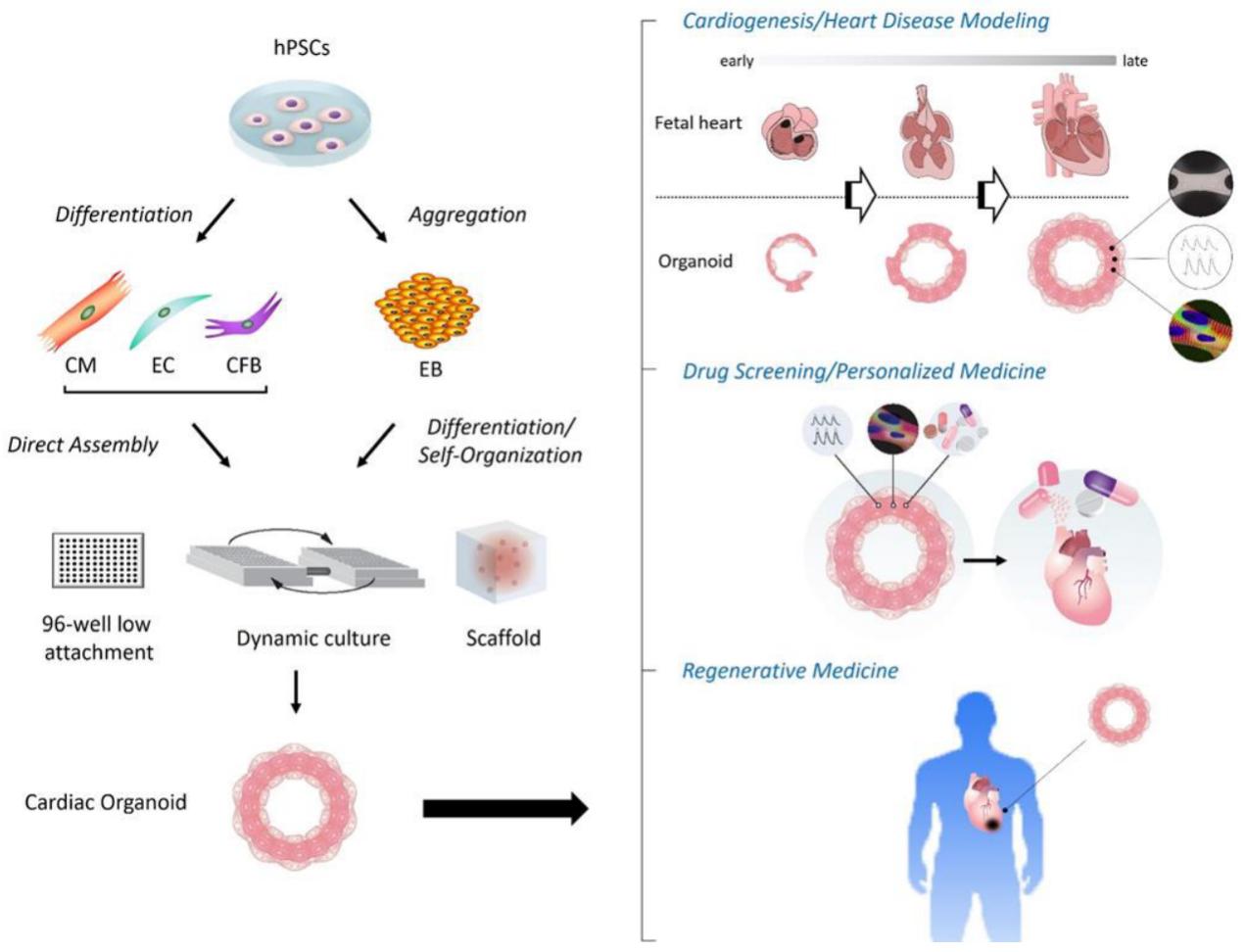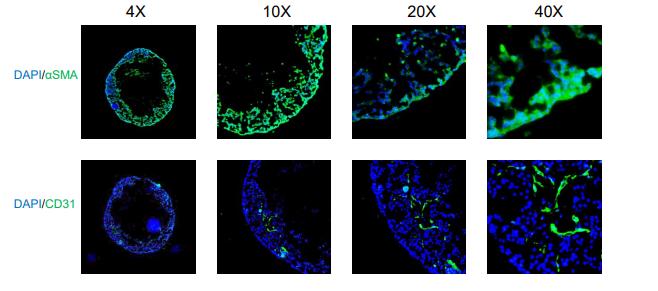- You are here: Home
- Services
- Stem Cell Research
- iPSC Differentiation
- Cardiac Organoid Differentiation Service from iPSC
Services
-
Cell Services
- Cell Line Authentication
- Cell Surface Marker Validation Service
-
Cell Line Testing and Assays
- Toxicology Assay
- Drug-Resistant Cell Models
- Cell Viability Assays
- Cell Proliferation Assays
- Cell Migration Assays
- Soft Agar Colony Formation Assay Service
- SRB Assay
- Cell Apoptosis Assays
- Cell Cycle Assays
- Cell Angiogenesis Assays
- DNA/RNA Extraction
- Custom Cell & Tissue Lysate Service
- Cellular Phosphorylation Assays
- Stability Testing
- Sterility Testing
- Endotoxin Detection and Removal
- Phagocytosis Assays
- Cell-Based Screening and Profiling Services
- 3D-Based Services
- Custom Cell Services
- Cell-based LNP Evaluation
-
Stem Cell Research
- iPSC Generation
- iPSC Characterization
-
iPSC Differentiation
- Neural Stem Cells Differentiation Service from iPSC
- Astrocyte Differentiation Service from iPSC
- Retinal Pigment Epithelium (RPE) Differentiation Service from iPSC
- Cardiomyocyte Differentiation Service from iPSC
- T Cell, NK Cell Differentiation Service from iPSC
- Hepatocyte Differentiation Service from iPSC
- Beta Cell Differentiation Service from iPSC
- Brain Organoid Differentiation Service from iPSC
- Cardiac Organoid Differentiation Service from iPSC
- Kidney Organoid Differentiation Service from iPSC
- GABAnergic Neuron Differentiation Service from iPSC
- Undifferentiated iPSC Detection
- iPSC Gene Editing
- iPSC Expanding Service
- MSC Services
- Stem Cell Assay Development and Screening
- Cell Immortalization
-
ISH/FISH Services
- In Situ Hybridization (ISH) & RNAscope Service
- Fluorescent In Situ Hybridization
- FISH Probe Design, Synthesis and Testing Service
-
FISH Applications
- Multicolor FISH (M-FISH) Analysis
- Chromosome Analysis of ES and iPS Cells
- RNA FISH in Plant Service
- Mouse Model and PDX Analysis (FISH)
- Cell Transplantation Analysis (FISH)
- In Situ Detection of CAR-T Cells & Oncolytic Viruses
- CAR-T/CAR-NK Target Assessment Service (ISH)
- ImmunoFISH Analysis (FISH+IHC)
- Splice Variant Analysis (FISH)
- Telomere Length Analysis (Q-FISH)
- Telomere Length Analysis (qPCR assay)
- FISH Analysis of Microorganisms
- Neoplasms FISH Analysis
- CARD-FISH for Environmental Microorganisms (FISH)
- FISH Quality Control Services
- QuantiGene Plex Assay
- Circulating Tumor Cell (CTC) FISH
- mtRNA Analysis (FISH)
- In Situ Detection of Chemokines/Cytokines
- In Situ Detection of Virus
- Transgene Mapping (FISH)
- Transgene Mapping (Locus Amplification & Sequencing)
- Stable Cell Line Genetic Stability Testing
- Genetic Stability Testing (Locus Amplification & Sequencing + ddPCR)
- Clonality Analysis Service (FISH)
- Karyotyping (G-banded) Service
- Animal Chromosome Analysis (G-banded) Service
- I-FISH Service
- AAV Biodistribution Analysis (RNA ISH)
- Molecular Karyotyping (aCGH)
- Droplet Digital PCR (ddPCR) Service
- Digital ISH Image Quantification and Statistical Analysis
- SCE (Sister Chromatid Exchange) Analysis
- Biosample Services
- Histology Services
- Exosome Research Services
- In Vitro DMPK Services
-
In Vivo DMPK Services
- Pharmacokinetic and Toxicokinetic
- PK/PD Biomarker Analysis
- Bioavailability and Bioequivalence
- Bioanalytical Package
- Metabolite Profiling and Identification
- In Vivo Toxicity Study
- Mass Balance, Excretion and Expired Air Collection
- Administration Routes and Biofluid Sampling
- Quantitative Tissue Distribution
- Target Tissue Exposure
- In Vivo Blood-Brain-Barrier Assay
- Drug Toxicity Services
Cardiac Organoid Differentiation Service from iPSC
Human cardiac organoids (hCOs) derived from induced pluripotent stem cells (hiPSCs) are useful as an advanced drug-testing model; they demonstrate similar electrophysiological functionality and drug reactivity as the heart. Compared to iPSC-derived cardiomyocytes, hCOs are similar to the human heart, as they contain cardiac fibroblasts, cardiac endothermic cells, cardiomyocytes, and various other cells that make up the actual heart.
 Figure 1. Schema of construction and applications of human cardiac organoids. (Makoto Sahara, 2022)
Figure 1. Schema of construction and applications of human cardiac organoids. (Makoto Sahara, 2022)
Creative Bioarray has established a scaffold-free protocol to generate multicellular, beating and self-organized human cardiac organoids in vitro from hiPSCs that can be cultured for long term. The generated human cardiac organoids containing multiple cell types that physiologically compose the heart, gradually self-organize and beat without external stimuli.
Service Workflow
- Consultation and Experimental Design: Our team of scientists will work closely with you to understand your specific research goals and design an experimental plan tailored to your requirements.
- iPSC Culture and Expansion: We will culture and expand your iPSCs in optimal conditions to ensure their quality and viability.
- Cardiac Induction: Through a series of carefully controlled steps, we will induce the differentiation of iPSCs into cardiac progenitor cells, mimicking the early stages of heart development.
- Organoid Formation: The cardiac progenitor cells will be seeded and cultured in specialized conditions that promote their self-assembly.
- Maturation and Characterization: The organoids will be cultured further to allow for maturation, and they will be characterized using various techniques such as immunostaining, gene expression analysis, and functional assays.
- Data Analysis and Reporting: Our team will analyze the generated data and provide you with a comprehensive report, including detailed findings, images, and relevant statistical analyses.
 Figure 1. Phase contrast images taken after differentiation, showing the morphological changes occurred.
Figure 1. Phase contrast images taken after differentiation, showing the morphological changes occurred.
 Figure 2. Characterization of cardiac organoids.
Figure 2. Characterization of cardiac organoids.
Creative Bioarray is an experienced and outstanding provider of Cardiac Organoid Differentiation, as well as IPSC-derived cardiac organoids. We are pleased to use our extensive experience and advanced platform to offer the best service to satisfy each demand from our customers.
If you have any special need in Cardiac Organoid Differentiation, do not hesitate to contact us for this special service. Please let us know what you need and we will accommodate you. We look forward to working with you.
Explore Other Options
For research use only. Not for any other purpose.

